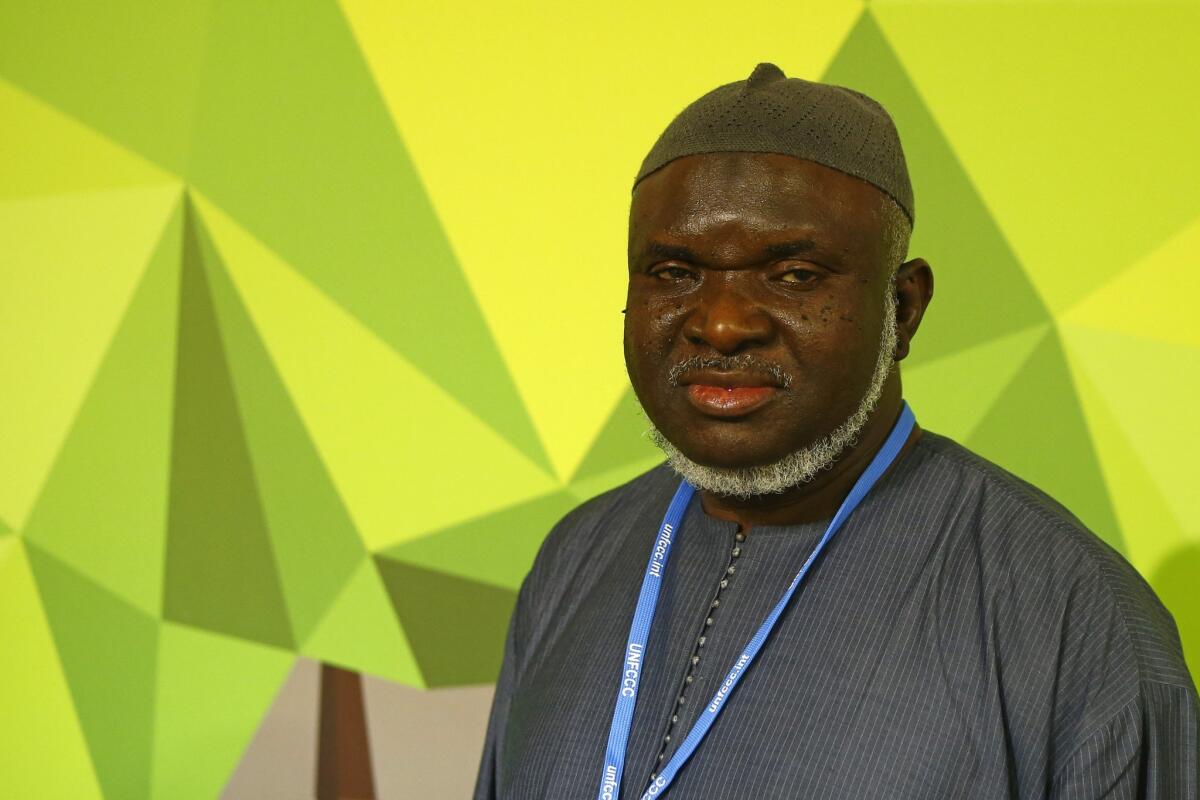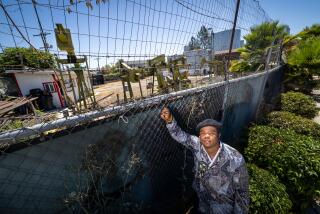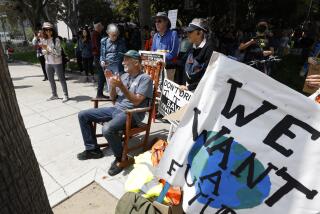To spotlight climate change, 10,000 religious activists go without food

Imam Ibrahim Saidy of Norway at the United Nations Climate Change Conference outside Paris on Tuesday.
- Share via
Reporting from Paris — Imam Ibrahim Saidy brought his symposiums and his monthly fasting to the Paris climate talks, hoping to call attention to the problems and injustice of global warming.
He calls it “green jihad.”
The Muslim cleric from Norway came up with the idea of an environmental holy movement a year ago. He uses the word jihad in its meaning of a struggle to do good, as opposed to extremists’ use of it to signify a holy war.
“The green jihad is to protect and save lives,” Saidy said Tuesday. “To make people aware of the dangers of climate change and fight for climate justice.”
Saidy is part of a growing interfaith religious movement seeking action by governments to fight global warming. For the last two years, about 10,000 religious activists have been fasting on the first day of the month to call attention to global warming, according to Caroline Bader of the Lutheran World Federation.
The idea came out of climate talks two years ago when Typhoon Haiyan pounded the Philippines, causing the Philippine negotiator at the climate talks to forgo food. The religious faithful joined in and haven’t stopped.
Tuesday was a fast day, so Saidy and dozens of others sat behind empty food trays at the United Nations Climate Change Conference, talking about why they were not eating.
“I’m fasting today because our world will never be complete until there’s space at the table — the climate just table — for everyone,” said the Rev. John McCullough, the New York-based head of Church World Service.
Pope Francis’ encyclical on the environment this year has lent a powerful moral voice to the issue of climate change, but he is far from alone.
“The pope is an absolute rock star, a total gift to the climate movement,” said Anna Joyner, a religious climate activist and campaign strategist for We Are Here Now in the United States.
“Our parents are more interested in the afterlife and the spiritual world,” Joyner said. “Young evangelicals are also interested in those things but tend to be more focused on what we can do now and the whole idea of bringing the kingdom of heaven to Earth.”
Joyner, the daughter of an evangelical megachurch pastor, brought some Christian musicians from North Carolina to the Paris climate talks.
“Peace is at stake here,” said the most Rev. Thabo Makgoba, the Anglican archbishop of Cape Town, South Africa. “It is both a moral and ethical issue. And it is a spiritual issue.”
More to Read
Sign up for Essential California
The most important California stories and recommendations in your inbox every morning.
You may occasionally receive promotional content from the Los Angeles Times.










